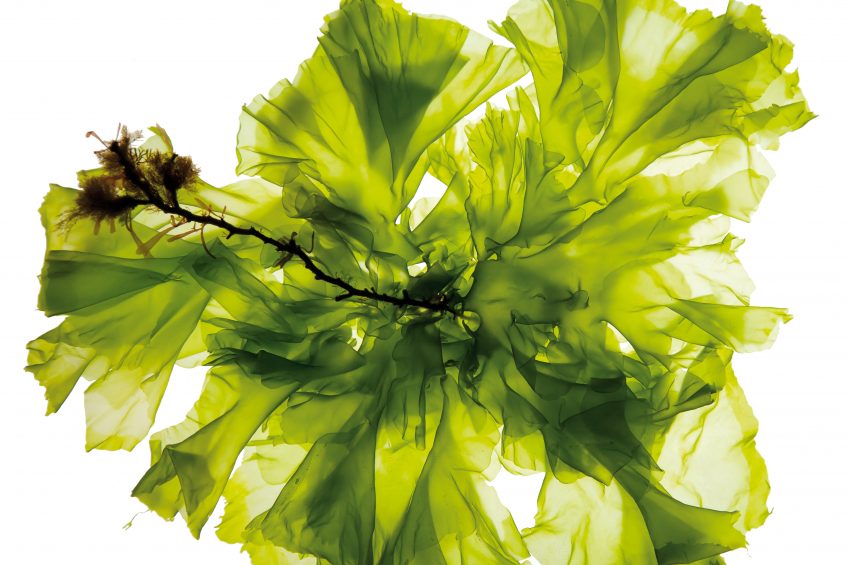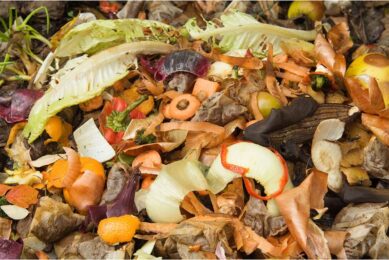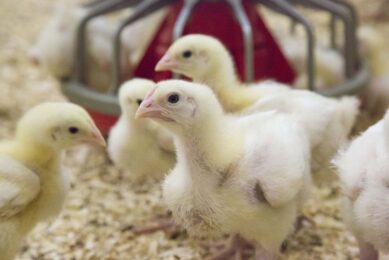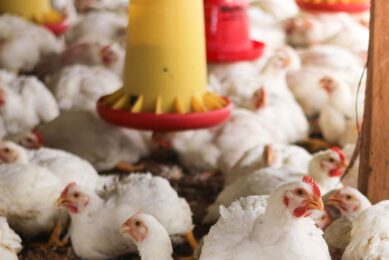Algae boosts natural defences in broilers

Broilers have to face several challenges throughout their production cycle. Innovative marine algae extracts boosts broilers’ natural defences and optimises their performance without relying on antibiotics.
Modern broiler production has dramatically changed in the last years driven by an increasing consumer demand. Challenges arise through varying immune requirements, the physiological status and influence of external factors. Among external factors, environmental stress such as temperature or stocking density, management stress such as vaccination programmes, feed stress such as transitions or presence of toxins (mycotoxins) can really impact the animal’s health and thus performance. Of course, sanitary pressure will greatly impact immunity and thus performance. This situation is aggravated if the animals are already lacking immunity.
The use of antibiotics has played a major role in improving the health and productivity of broilers over the last decades. The efficacy of in-feed prophylactic antibiotics in increasing animal growth rate and reducing mortality from clinical diseases is well documented. However, it has been suggested that use of antibiotics in food producing animals may contribute to a reservoir of drug-resistant bacteria capable of transferring anti‐microbial resistance (AMR) to pathogenic bacteria in both animals and humans. As a result more and more countries are implementing ‘no antibiotic ever’ productions, trying to also eliminate therapeutic use of antibiotics. This trend has urged an intensive research effort to identify alternative bioactive compounds that are able to promote animal health and performance.
Most of the alternatives available in the market rely on different mechanisms yet targeting the same goal: preventing any intestinal dysbiosis, by regulating the intestinal microflora balance. The modulation of the animal’s immune function is another approach leading to a higher resilience degree against external aggressors and infectious agents. The goal is to make the animal’s able to better face daily challenges on their own. Recent research has highlighted the potential of in-feed marine macroalgal polysaccharides as a reliable solution to strengthen an animal’s defences. They are really potent to secure performance in modern production system, plus good candidates as alternatives to in-feed antibiotics in animal production.
Gut integrity and immunity
Besides digestive functions, immune function is one of the most important activity carried out in the intestinal mucosa. While playing a barrier role towards pathogens and toxins, gut mucosa hosts high a number of immune cells which activities determine local immune responses. It is important to point out that approximately 70% of the total numbers of immune cells are located in the intestinal tract (gut associated lymphoid tissue, GALT).
The gut mucosa is considered a dynamic physical barrier that prevents colonisation by pathogens. The main components that determine gut integrity and permeability are the mucus layer which is mainly composed of glycoproteins known as mucins, secreted by the goblet cells; and the tight junctions which are protein complexes that seal the paracellular pathway between two adjacent epithelial cells. Thus, supporting the barrier function and enhancing local immune responses in the gastrointestinal tract will have a positive impact on the systemic immune status of the animals and overall performance.
Macroalgal extracts
The cell wall of marine macroalgae is mainly composed of water soluble sulphated polysaccharides which present a complex structure. The molecular weight and several structural specificities, among others, branched conformation, presence of several sugars and more particularly rare ones (xylose and rhamnose) and sulphation, confer to algal polysaccharides unique biological activities. Among others, modulation of the immune responses and reinforcement of the intestinal mucosa barrier function. Sulphated polysaccharides are specific from macroalgae, they are not found in terrestrial plants, nor microalgae or yeast cells walls. Due to all these structural specificities, marine sulphated polysaccharides possess phylogenetic analogies with animal’s glycosaminoglycanes (GAG’s), as heparin. This explains their high degree of reactivity and specific biological activities in animals.
Olmix Group (France) has been studying marine biotechnologies for more than 20 years and has developed a full macroalgae bio-refinery process focused in the extraction and use of specific macroalgae polysaccharides (Olmix MSP) to support animals in facing modern production challenges. This lead to the development of an in-feed product, Algimun, which is based on the combination of two biologically active macroalgal extracts: MSP Immunity, which constitutes an innovative modulating agent that reinforces innate and adaptive immune responses; and MSP Barrier, which enhances the barrier function of the intestinal mucosa.
The effects of a specific green algal extract (MSP Immunity) were evaluated using the in-vitro model IPEC-1 in order to simulate the interaction of the extract with the intestinal epithelium when administered orally. The extract activates the immune response by interacting with membrane receptors, specifically toll-like receptors 4 and 2 (TLR4 and TLR2) and this interaction leads to a rapid activation of transcription factors that control the gene expression of an array of immune response mediators (cytokines and chemokines). These immune mediators are involved in several biological mechanisms such as proliferation and differentiation of B- and T-lymphocytes; recruitment and activation of phagocytic cells and effector lymphocytes; and intercellular communication by synthesis of immune mediators. Therefore, MSP Immunity participates in the modulation of the defence activities linked to both innate and adaptive immune responses.
The enhancement properties of a specific red algal extract (MSP Barrier) on the intestinal barrier function were assessed in-vitro in two colonic epithelial cell lines in physiological and inflammatory conditions. Enterocyte-like Caco2 cells and mucus-secreting HT-29 MTX cells were used for tight junction and mucin evaluation respectively. The extract of red algae have shown to upregulate the expression of different target genes that are essential for optimal functioning of the tight junctions via improving the interaction existing between the plasma membranes of two adjacent cells (transmembrane proteins) and the maintenance of the tight junction assembly (scaffolding proteins). Besides, the extract has shown to upregulate the expression of mucin targeted genes that have crucial roles in the regulation of epithelial cell differentiation (membrane-bound), the establishment of the mucus layer (gel-forming) and the prevention of pathogen colonisation. MSP Barrier plays a role in the maintenance of gut mucosa integrity, which is the first line of defence against pathogens and toxins by rendering the tight junctions stronger and a more functional mucus layer.
Synergistic activity for optimum efficacy
Algimun can be used as an in-feed compound that is able to promote health and performance of broilers, especially in the starter and grower phase, where pressure is at the highest, but also up to the slaughter. Applied in the field through feed supplementation, the product proved to improve broilers performance (+ 2,3%ADG, -1,8FCR, +3%PEF) while reducing mortality rate (-4,5%) with a Return of Investment of more than a factor of five for the integrator (+0,03€ /broiler). Algimun algal bioactive compounds boost animal’s immune responses and reinforce the intestinal barrier function. The use of the compound can play an important role within the reduction of antibiotics in the feed.
Join 31,000+ subscribers
Subscribe to our newsletter to stay updated about all the need-to-know content in the poultry sector, three times a week. Beheer
Beheer








 WP Admin
WP Admin  Bewerk bericht
Bewerk bericht